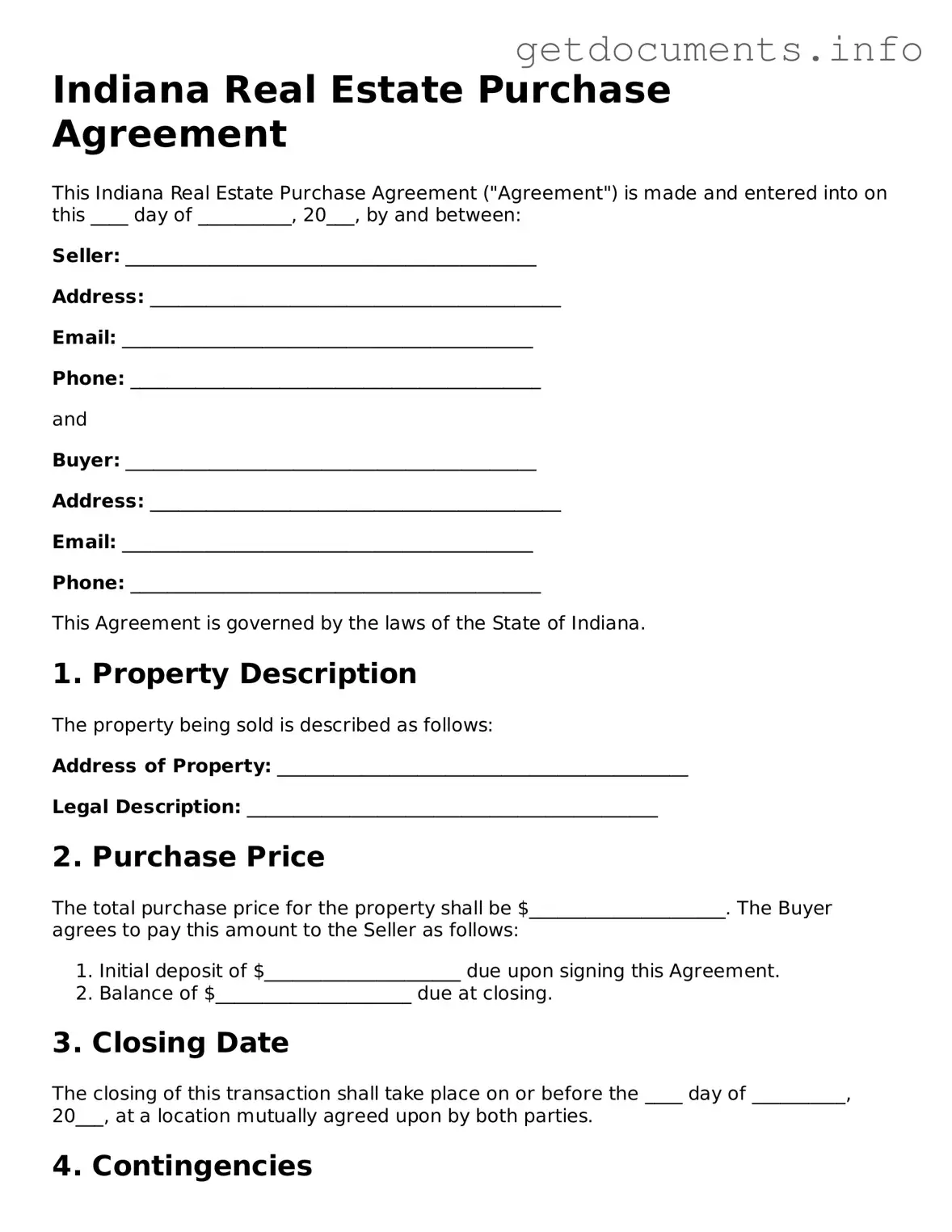Free Real Estate Purchase Agreement Template for Indiana
The Indiana Real Estate Purchase Agreement form is a legal document that outlines the terms and conditions for buying or selling property in Indiana. This agreement serves as a crucial framework for both buyers and sellers, ensuring that all parties understand their rights and responsibilities throughout the transaction process. To facilitate your real estate dealings, consider filling out the form by clicking the button below.
Access Real Estate Purchase Agreement Editor

Free Real Estate Purchase Agreement Template for Indiana
Access Real Estate Purchase Agreement Editor
Got places to be? Complete the form fast
Fill out Real Estate Purchase Agreement online and avoid printing or scanning.
Access Real Estate Purchase Agreement Editor
or
⇩ PDF File
